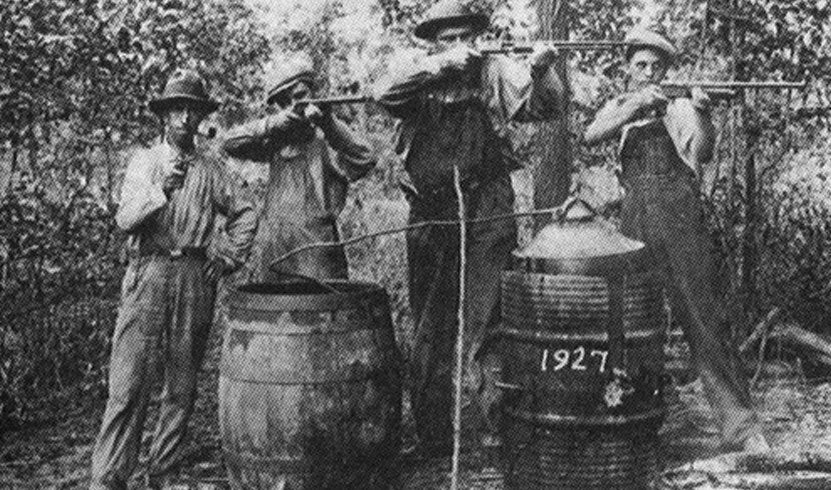
Moonshine Lore: Exploring the Secret Language of Appalachia
Awaken To The OneShare
Moonshiner Phrases: A Journey into the Language of Appalachia and the Smoky Mountains
The Appalachian and Smoky Mountain regions are steeped in history and tradition, and one of their most fascinating cultural facets is the world of moonshining. Moonshiners – individuals who distill alcohol illegally, often at night under the cover of darkness – developed their own unique language over the centuries. This rich tapestry of phrases and slang, born from necessity, secrecy, and regional identity, provides a fascinating glimpse into their clandestine world. Let’s explore some of the most intriguing moonshiner phrases and what they reveal about the people and the craft.
The Origins of Moonshiner Vocabulary
Moonshining has deep roots in Appalachia and the Smoky Mountains, dating back to the early settlers of Scotch-Irish descent. These immigrants brought with them the knowledge of distilling, which became a way of life in the mountains. The rugged terrain and isolation made the region perfect for producing and transporting illegal liquor, especially when the government began taxing alcohol in the late 18th century.
Secrecy was paramount for moonshiners to avoid detection by law enforcement. Over time, they developed a lexicon to communicate covertly about their operations. These phrases often referenced nature, tools, and daily life, providing plausible deniability while being rich with meaning for those in the know.
Key Moonshiner Phrases and Their Meanings
Below are some of the most colorful and telling phrases from the moonshiner’s vernacular:
1. White Lightning
Arguably the most famous term, "white lightning" refers to the clear, potent liquor moonshiners produced. The name evokes the drink’s appearance and its powerful kick. It’s also known as "mountain dew" or "corn liquor."
2. Firewater
This term reflects the high alcohol content of moonshine and its fiery burn when consumed. It’s believed to have origins in interactions with Indigenous peoples, who used the term to describe strong spirits.
3. Mash
Mash is the fermented mixture of grains, sugar, and water used to create alcohol. Phrases like “working the mash” or “boiling the mash” describe various stages of moonshine production.
4. Still
A "still" is the apparatus used to distill alcohol. Commonly hidden deep in the woods, a still was also referred to as a "cooker" or "pot." If someone said, “The pot’s boiling,” it meant the moonshine was in production.
5. Revenuers
The term "revenuers" referred to government agents tasked with enforcing tax laws and shutting down illegal distilleries. Moonshiners often used phrases like “The revenuers are sniffing around” to warn of an impending raid.
6. Cat’s Eye
This poetic term describes the faint gleam of a lantern in the woods, often a sign that moonshiners were at work. It also symbolized the secrecy and danger of their nighttime operations.
7. Axle Grease
Moonshiners used this phrase to describe bribes paid to law enforcement or other individuals to turn a blind eye to their activities. “Spread some axle grease” was the euphemism for keeping operations running smoothly.
8. Holler
In Appalachian dialect, a "holler" is a small, secluded valley. Moonshiners often set up their operations in remote hollers to avoid detection. The phrase “deep in the holler” became synonymous with clandestine activity.
9. Shiner’s Trail
This referred to the paths moonshiners used to transport their goods, often on foot or horseback. These trails were deliberately chosen for their obscurity, winding through dense forests and over rugged terrain.
10. Running the Juice
This term describes the act of transporting moonshine from the still to customers. It was a dangerous job that required speed and stealth, often carried out by skilled drivers who later inspired stock car racing and NASCAR.
11. Popskull
A colorful term for poorly made or extremely strong moonshine, “popskull” suggests the drink’s ability to give a severe hangover or headache.
12. All Dried Up
This phrase indicated that a still site had been abandoned, either due to a raid or the fear of discovery. Moonshiners often moved their operations frequently to stay ahead of the law.
The Role of Nature in Moonshiner Language
Moonshiners had a deep connection to the natural world, and this is reflected in their language. Phrases like “The creek’s runnin’ high” could mean more than just a water level; it might indicate conditions were good for transporting liquor. Similarly, terms like “owl hoot” or “bobcat” were used as code to alert others of danger or signal specific activities.
The dense forests and winding streams of Appalachia served as both ally and adversary. Moonshiners relied on the cover of trees and the sound of rushing water to conceal their operations, while also facing the challenges of rugged terrain and isolation. These elements shaped their vocabulary in ways that were both practical and poetic.
Legacy of Moonshiner Phrases
Though the heyday of moonshining has passed, its language endures as part of Appalachian culture and folklore. Many of these phrases have found their way into popular media, music, and literature, keeping the spirit of the moonshiner alive. Shows like "Moonshiners" on the Discovery Channel and songs like "Copperhead Road" by Steve Earle pay homage to this unique chapter of American history.
Beyond entertainment, the language of moonshiners speaks to the ingenuity and resilience of the people who coined it. In the face of economic hardship, government crackdowns, and the challenges of mountain life, they found ways to survive and thrive – and they left behind a linguistic legacy that continues to captivate and inspire.
Conclusion
The phrases of moonshiners from Appalachia and the Smoky Mountains offer more than just a glimpse into the past; they tell a story of survival, community, and creativity. Whether you’re sipping a modern craft moonshine or wandering through the hollers where the tradition began, the words of the moonshiners remind us of the rich cultural heritage of this storied region. So next time you hear the term "white lightning" or "firewater," take a moment to appreciate the history it carries – a history as bold and spirited as the drink itself.
